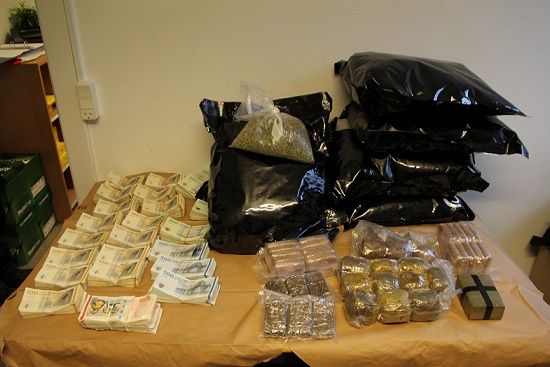What seemed like a massive success for Copenhagen Police and the authorities in their efforts to combat the sale of illegal drugs in Christiania is rapidly turning into a legal nightmare.
Today, the judge in one of the seven large trials related to ‘Operation Nordlys’ was censured for ‘inappropriate behaviour’ by the independent police complaints authority, Den Uafhængige Politiklagemyndighed (DUP).
Here comes the judge
During the trial, the judge highly praised the police agents who were central witnesses in the case to a prosecution lawyer – praise the lawyer later emailed to the witnesses, reports DR Nyheder.
“The judge specifically asked me to pass on my best regards to you both – for a superb effort – and yes, that is a direct quote,” the mail said.
Strike a light
It all started back in March 2014 when police launched ‘Operation Nordlys’ (Northern Lights) – a large-scale action against organised crime on Pusher Street in Christiania, which included raids on 150 addresses in Zealand.
More than 80 people were charged with orchestrating large-scale cannabis sales and seven different trials were initiated, resulting in 83 people being sentenced to a total of almost 220 years in prison.
Suspicious minds
During the course of the appeals process that followed, defence lawyers in the High Court protested against what they saw as collusion between the prosecution and three undercover police witnesses central to the case over their testimony.
This resulted in the chief prosecutor being removed from the case under suspicion of trying to influence witnesses. The case was then referred to the independent police complaints authority, Den Uafhængige Politiklagemyndighed (DUP).
In the summer of 2017, two public prosecutors were charged, one with abuse of public office and colluding to give false testimony in court, the other with abuse of public office and a dereliction of duty.
Just before Christmas last year, the DUP delivered its report to the public prosecutor in Viborg, who now has to determine whether to charge the prosecutors. A decision also has to be made regarding the trials that have been put on stand-by and also those already concluded.
Very good friends
There is no doubt that one of the prosecutors, Trine Sorgenfri, seems to have had an especially friendly relationship with the undercover police witnesses. Danmarks Radio has uncovered a great deal of documentation in the form of emails between the parties.
In some of the mails, the prosecutor asked police agents to identify suspects before a session in court. Sorgenfrei has also admitted that this way of working was quite normal and that there was frequent contact between the prosecution and police agents.
It’s just not on
However, there are clear restrictions on what the parties can talk about. Eva Smith, a professor of law who has seen the correspondence, told DR: “You are not allowed to talk about the exact testimony that a witness is going to present in court. That’s something that ought to be a completely fundamental principle.”
After a DR documentary on the subject was shown on Wednesday evening, several of the justice spokespersons from different parties in Parliament have commented publicly on the case.
Preben Bang Henriksen from Venstre feels the case calls into question the integrity of the justice system. “The way the prosecution has handled the case is full of errors. It’s not just small mistakes but fundamental ones, and it seems as if they have been made on purpose, so this is just not on,” he said. “I’ve been a defence lawyer for 35 years and I’ve never seen anything like it.”
“You are presumed innocent until the opposite is proved, so we simply can’t have the prosecution colluding with the police over witnesses testimony,” said Rune Lund of Enhedslisten.
“There is a risk of people being convicted of something where there’s simply not enough evidence and even innocent people being convicted. This doesn’t wash in a country subject to the rule of law,” he added.














